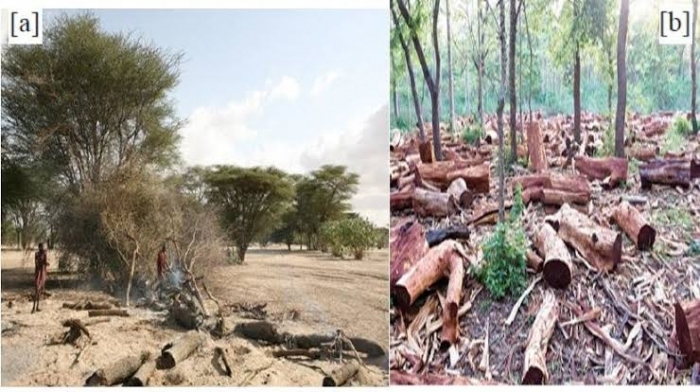A recent study has unveiled that Nigeria has lost a staggering 17,400 km² of forest cover between 2000 and 2020 due to deforestation. This area is equivalent to the combined size of Lagos (3,577 km²), Enugu (7,161 km²), and the Federal Capital Territory (FCT) (7,315 km²).
The study, presented by Aliyu Salisu Barau, a professor and Dean of the Faculty of Earth and Environmental Sciences at Bayero University Kano, during the Final Workshop of a Research Project on "Improving Access to Clean and Modern Energy for Cooking while Reducing Land Degradation and Biodiversity Loss in Nigeria," highlighted the alarming rate at which Nigeria is losing both animal and plant species in its forests.
Conducted in collaboration with Bayero University Kano (BUK), University of York, and University College London, the research project spanned three years and focused on major deforestation hotspots for wood fuel and charcoal production in Kaduna, Nasarawa, and the Federal Capital Territory (FCT).
Barau emphasized the significance of the findings, noting that the forest loss in the studied areas is approximately five times the size of Lagos State. This aligns with UN estimates ranking Nigeria among the top three countries with the highest rates of deforestation.
The study also revealed that a vast majority (94.4%) of households in the two states and rural and semi-urban parts of the FCT rely on fuelwood or charcoal for cooking. Encouragingly, 95.8% of respondents expressed willingness to transition to cleaner fuels if they were available and affordable.
Barau underscored the importance of considering the perspectives of local communities in conservation efforts, warning that neglecting their needs could have dire consequences for Nigeria's ecological integrity and overall well-being.
